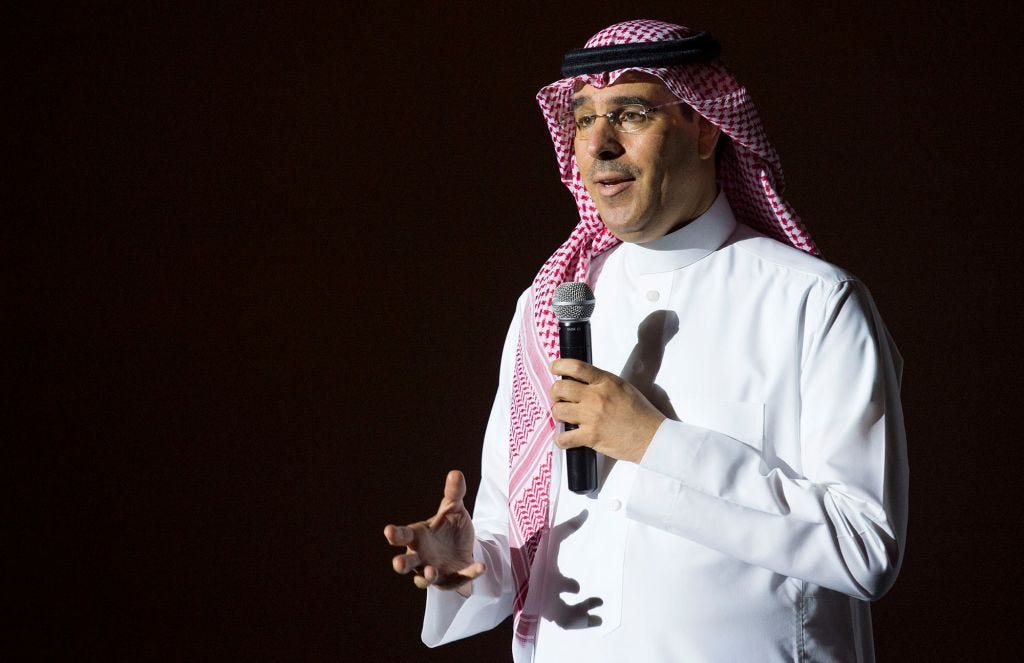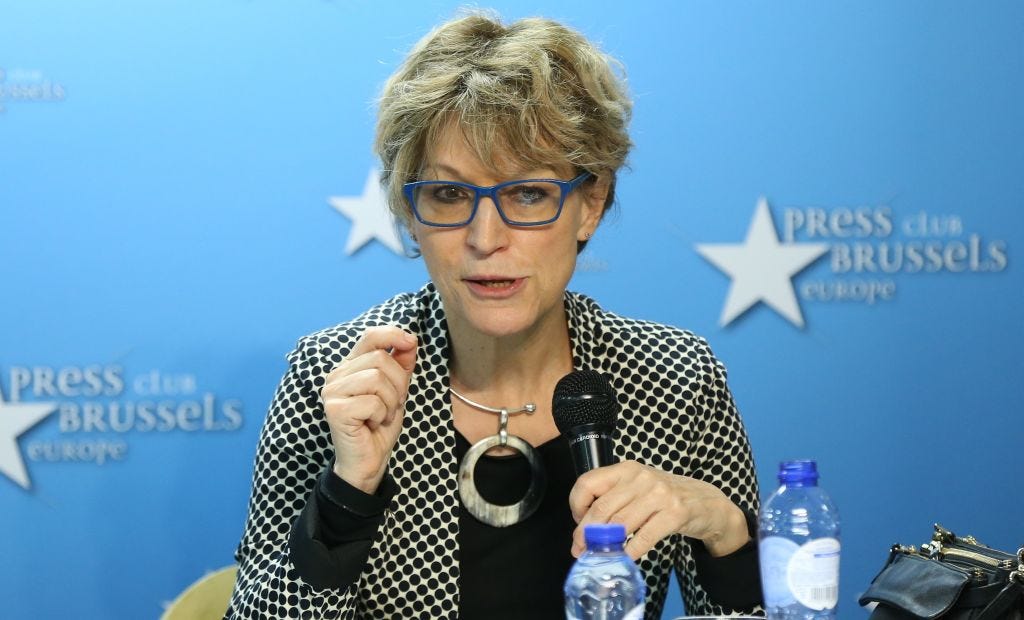Saudi official denies threatening UN expert who probed Khashoggi murder
Agnès Callamard is moving from the UN to Amnesty International
The president of Saudi Arabia’s governmental Human Rights Commission denied that he threatened a United Nations expert who led an investigation into the killing of journalist Jamal Khashoggi.
Agnès Callamard, the outgoing UN expert on extrajudicial killings, told the Guardian earlier this week that a Saudi official had threatened she would be “taken care of” if the UN did not rein her in.
The newspaper did not reveal the identity of the Saudi official who allegedly issued the threat in a meeting with senior UN officials in Geneva. Callamard was not present at the meeting but was informed about it from a colleague. Asked how the comment was perceived at the time, she said: “A death threat. That was how it was understood.”
The UN human rights office on Wednesday confirmed the accuracy of the report. “We confirm that the details in the Guardian story about the threat aimed at Agnes Callamard are accurate,” UN human rights spokesman Rupert Colville told Reuters.
HRC chief Awwad al-Awwad on Thursday revealed himself to be the official in question.
“It has come to my attention that Ms. Agnes Callamard of Amnesty International and some U.N. officials believe I somehow made a veiled threat against her more than a year ago,” he said on Twitter. “I reject this suggestion in the strongest terms. While I cannot recall the exact conversations, I never would have desired or threatened any harm upon a U.N.-appointed individual, or anyone for that matter.”
Callamard had published a detailed report into the murder of Khashoggi, who was killed at the Saudi Consulate in Istanbul in October 2018, and repeatedly criticised the kingdom’s human rights record.
It was surprising that Awwad has decided to identify himself as the Saudi official in question, but perhaps it is an attempt to preemptively manage the fallout, out of fear that his name would eventually leak.
The HRC chief, who previously served as ambassador to Germany and minister of information, implicitly suggested that the story aims to undermine recent reforms announced by the government. These reforms include abolishing the death penalty for people who committed crimes as minors and limiting the use of flogging as a punishment.
“I truly hope that this story was not concocted to distract from the important work we are doing to advance human rights in Saudi Arabia,” he said. “No country is advancing faster on reforms than us right now.”
HRC was established under the late King Abdullah in 2005 with a mandate of monitoring the government’s adherence to human rights laws and regulations, including international charters that Saudi Arabia signed and ratified. Although the commission’s president reports directly to the king, HRC has always been far weaker than the government departments that it is supposed to hold accountable.
Lacking the power to do much at home, HRC’s role has been mainly limited to defending Saudi Arabia’s human rights record at the UN and other international forums. But as the kingdom became increasingly assertive with the rise of Crown Prince Mohammed bin Salman, the commission has begun trying to be more proactive about promoting reforms and seeking to get recognition for them.
Speaking at the 46th virtual session of the UN Human Rights Council last month, Awwad touted “nearly 90 major human rights reforms over the past few years, and women’s rights constitute the largest share of these reforms.”
Another notable aspect of HRC’s new approach is an attempt to redefine the concept of human rights, particularly in the context of the coronavirus pandemic. This redefinition, aggressively pushed by pro-government pundits in recent months, aims to convince the public that the real human rights are safety, stability and access to healthcare, education and other basic services, rather than the “Western” understanding that focuses on issues like freedom of expression or political dissent.
Salman al-Dosary, a former editor of Asharq al-Awsat, wrote last December:
The Saudi lesson, to which none can bear witness without admiring, is to redefine human rights. The Saudi concept is a far cry from the stereotypical Western definition that nations are expected to believe in as one believes in divine scripture, one that has been subjected to longstanding distortion and limited exclusively to political human rights. And yet, we came to discover that humans’ right to preserve their lives in times of crisis and disaster lies at the end of the page. Therefore, it is intuitive that, post-Corona, the concept of what a stable state is and how it protects its citizens from imminent dangers will be wholly redefined to diverge from the prevailing concept which has been shown imperfect and cannot be considered an exemplar.
Upon objectively examining how advanced Western countries dealt with the pandemic, we find that they have failed miserably and that their limited concept of human rights and narrow view of citizen’s fundamental rights are behind this failure. When the pandemic struck, it became apparent that some rights and needs are far more critical and that they have been overlooked. Haven’t the countries that deeply contemplated human rights concepts - and are still in the midst of overcoming the pandemic- been subject to a deep fracturing of their social system because of the way they have been dealing with the pandemic since day one? With that, advanced countries’ path remains a long one, while other countries, like Saudi Arabia, which had been seen as less capable of protecting human rights, presents itself as an international forerunner after having made the success at protecting real human rights.
Government supporters often accuse critics like Callamard of politicising human rights and dismissing the progress that Saudi Arabia has made in recent years. HRC offers the opposite: celebrate progress while staying silent on issues such as political detentions or torture allegations.
Adhwan al-Ahmari, editor-in-chief of Saudi-owned Independent Arabia, called Awwad’s comments a “great step” that shows the kingdom won’t be bullied under the pretext of human rights. “Callamard’s credibility is on the line, and Awwad’s coming out and detailed response is a courageous and responsible act by not ignoring the allegations and fabrications of so-called rights defenders in the West,” he said.
State media has previously raised questions about Callamard’s background and accused her of “opposing the kingdom in all her positions without any evidence or objectivity.” She is leaving the UN to become secretary-general of Amnesty International, a move that some Saudi commentators described as fitting because the advocacy group is seen as hostile towards the kingdom.
“She has finally left the UN after her bias against Saudi Arabia and other countries became clear, and has deservedly moved to her rightful place among the leftist international organisations,” Saudi journalist Abdulaziz al-Khames wrote on Twitter.
In her exit interview with the Guardian, Callamard criticised European countries for failing to stand up for human rights during the Trump years, citing Saudi Arabia as a case in point. “None of the European states were prepared to see a cosy relationship challenged or questioned or weakened by any kind of human rights stance,” she said.
Callamard also complained that she faced obstacles “at every turn” at the UN, which she said did not provide adequate support for human rights work, including the Khashoggi report, by far her most high-profile investigation.
The investigation, conducted in 2019, concluded there was “credible evidence” that the heir to the throne and senior Saudi officials were responsible for killing Khashoggi, and called for sanctions targeting the crown prince’s assets and international engagements.
“I approached my mandate with a sense of defiance and a sense of stubborn determination and super hard work, so that I could do what I wanted to do,” she said. “They don’t want to give me resources? I will do it anyway. They don’t want to help me do my research on Jamal Khashoggi? Well, I will do it, and I will pay for it myself, which I did, by the way.”


